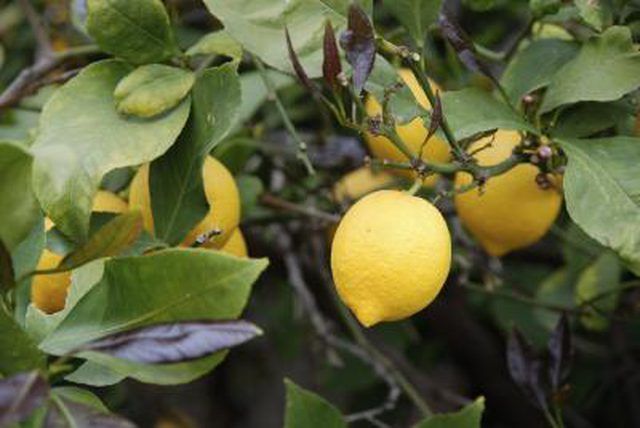Bulbs
Flower Basics
Flower Beds & Specialty Gardens
Flower Garden
Garden Furniture
Garden Gnomes
Garden Seeds
Garden Sheds
Garden Statues
Garden Tools & Supplies
Gardening Basics
Green & Organic
Groundcovers & Vines
Growing Annuals
Growing Basil
Growing Beans
Growing Berries
Growing Blueberries
Growing Cactus
Growing Corn
Growing Cotton
Growing Edibles
Growing Flowers
Growing Garlic
Growing Grapes
Growing Grass
Growing Herbs
Growing Jasmine
Growing Mint
Growing Mushrooms
Orchids
Growing Peanuts
Growing Perennials
Growing Plants
Growing Rosemary
Growing Roses
Growing Strawberries
Growing Sunflowers
Growing Thyme
Growing Tomatoes
Growing Tulips
Growing Vegetables
Herb Basics
Herb Garden
Indoor Growing
Landscaping Basics
Landscaping Patios
Landscaping Plants
Landscaping Shrubs
Landscaping Trees
Landscaping Walks & Pathways
Lawn Basics
Lawn Maintenance
Lawn Mowers
Lawn Ornaments
Lawn Planting
Lawn Tools
Outdoor Growing
Overall Landscape Planning
Pests, Weeds & Problems
Plant Basics
Rock Garden
Rose Garden
Shrubs
Soil
Specialty Gardens
Trees
Vegetable Garden
Yard Maintenance
Good Fertilizer for Lemon Trees
Good Fertilizer for Lemon Trees. Lemon trees (Citrus limon) need small amounts of high-nitrogen fertilizer regularly through the growing season. Hardy in U.S. Department of Agriculture plant hardiness zones 9 through 11, lemon trees grow 10 to 20 feet tall and 10 to 15 feet wide, depending on the variety. Newly planted trees need little fertilizer,...

Lemon trees (Citrus limon) need small amounts of high-nitrogen fertilizer regularly through the growing season. Hardy in U.S. Department of Agriculture plant hardiness zones 9 through 11, lemon trees grow 10 to 20 feet tall and 10 to 15 feet wide, depending on the variety. Newly planted trees need little fertilizer, but the trees' fertilizer needs increase as they grow. Lemon trees grow best in fertile, well-drained soil in full-sun sites.
Newly Planted Trees
Newly planted lemon trees growing in average or poor soil benefit from a little high-nitrogen fertilizer in their first year. Fertilizers contain different amounts nitrogen. A good fertilizer for lemon trees is ammonium sulfate, which contains 21 percent nitrogen. Newly planted lemon trees growing in dark, fertile, organically rich soil don't need fertilizer in their first year.
Fertilize newly planted lemons trees when new growth appears. Sprinkle 2 1/2 ounces of ammonium sulfate around the bases of the trees, but avoiding their trunks. Fertilize the trees again in late spring or early summer, when a second flush of growth often appears. Apply the fertilizer for a third time in late fall, when there is usually a third flush of growth.
Young Lemon Trees
Young lemon trees need 1/4 to 1/2 pound of nitrogen per year, which is contained in 1 1/3 pound to 2 1/3 pounds of ammonium sulfate. The first and second year after planting, sprinkle 7 ounces of ammonium sulfate within the trees' drip lines in spring, summer and fall when new growth appears. The drip line is the line on the ground where rain drips from a tree's canopy. Don't allow the fertilizer to touch the trees' trunks.
The third year after planting, sprinkle 12 ounces of ammonium sulfate within the drip lines of the trees when you see new growth in spring, summer and fall.
Mature Lemon Trees
Mature lemon trees' fertilizer needs vary according to the size and age of the trees. For example, small trees that have been in the ground for four years need 3/4 pound nitrogen -- 3 1/2 pound ammonium sulfate -- per year, and midsized lemon trees that have been growing for five years need 1 pound of nitrogen, or 4 3/4 pound of ammonium sulfate. Divide the fertilizer into three portions, and apply each portion when new growth appears in spring, summer and fall.
Large lemon trees that have been growing six years or longer and haven't been trimmed to restrict their size need 1 1/2 pound of nitrogen, which is contained in 7 1/4 pound of ammonium sulfate.
Overfertilization can be a problem in lemon trees, causing excessive green, leafy growth and reduced fruit production. Don't apply more than the recommended amounts of fertilizer unless the trees are showing signs of nitrogen deficiency, such as yellow older leaves, premature leaf drop and small, thin-skinned fruit.
Nutrient-Deficient Lemon Trees
Alkaline or poor-quality soils can cause nutrient deficiencies in lemon trees. These trees grow best in soil with a pH between 6.0 and 7.0, and a pH higher than 7.0 can prevent lemon trees from taking up essential micronutrients, such as iron. A home soil test kit shows the pH level in soil.
Signs of micronutrient deficiency include small, distorted, discolored leaves and fruit. For example, light green to whitish new leaves with dark green veins and normal older leaves indicate an iron deficiency. An iron chelate foliar spray temporarily reduces symptoms of iron deficiency, and other sprays are available that supply other micronutrients. Wear protective clothing and safety goggles when applying foliar fertilizers, and don't spray when lemon trees are flowering.
To treat lemon trees suffering from iron deficiency, dilute a product containing 5 percent soluble iron, 3.5 percent chelated iron and 3.4 percent combined sulfur at a rate of 1 tablespoon per 1 gallon of water. Spray the solution on the upper and lower surfaces of the lemon trees' leaves. Manufacturers' instructions vary among products. Always read and follow the directions on the product label.